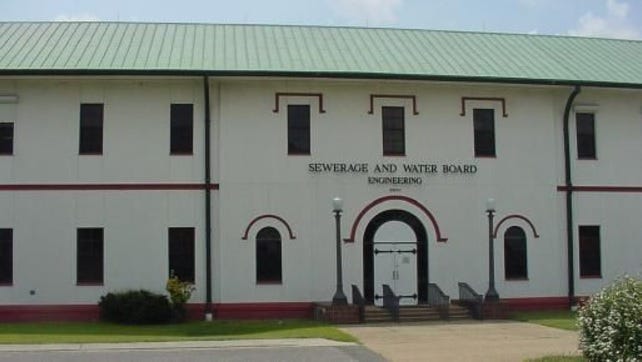
The beleaguered New Orleans Sewerage and Water Board’s fiscal health hasn’t improved much in the age of COVID. Newell invited District A City Councilmember Joe Giarrusso onto the program Tuesday morning to explain in detail.
“Joe, there’s been a series of articles recently about the trials and tribulations of SWBNO, most recently about their financial problems as a number of people aren’t paying their bills right now,” Newell began. “Obviously that raises concerns. What kind of situation are they in and how are they prepared?”“It’s sort of a good news, bad news situation,” Giarrusso said. “The good news is they provided us some information we didn’t have before, and I think the public will be glad to hear about it. They’re discussing how to collect money during and after COVID and what that looks like for people who were behind before the pandemic hit, and for people who have incurred additional debt as a result of the pandemic… the fact that they’re articulating a plan for that is a good thing. They’ve increased their power by about 20 megawatts, and their people have been at the plants and pump stations. That’s the good side of the equation. The side that needs work is the definitive questions that have been lingering pre-COVID and have been asked for years. Go back and look at the Mayor’s transition report - we’re over 1300 days with the same billing system and we have the same problems. Whether or not they have a good inventory system of parts remains unknown. With June 1 around the corner, we have got to know the shape of the power plants, pumps and how all of that is working.”
“How concerned are you that they continue to have this collection problem, with more and more folks taking the attitude that they’re just not going to pay?” Newell continued. “I know the Council has been faced with the dilemma of what action to take if they dont pay - I ask, if they already are not paying and we continue to provide the service, what makes us think they’re ever going to be in a position to catch up?”“It’s a great question, that’s one of the main issues we have highlighted,” Giarrusso said. “The way we get information is in two separate buckets - there’s the current balance bucket, which is all the accounts that are due and owing, and SWBNO says if you’re less than 59 days behind, you’re likely to pay. When you get more than 60 days behind, they start getting worried. If you look at those numbers from December 2019 of people who are more than 60 days behind or closed their accounts, the accounts receivable is about $70 million. Today, that number is about $75 million. Where do all these fall? Is it people who have legitimate billing disputes, or is it people who have skirted the system and are gaming it?”
